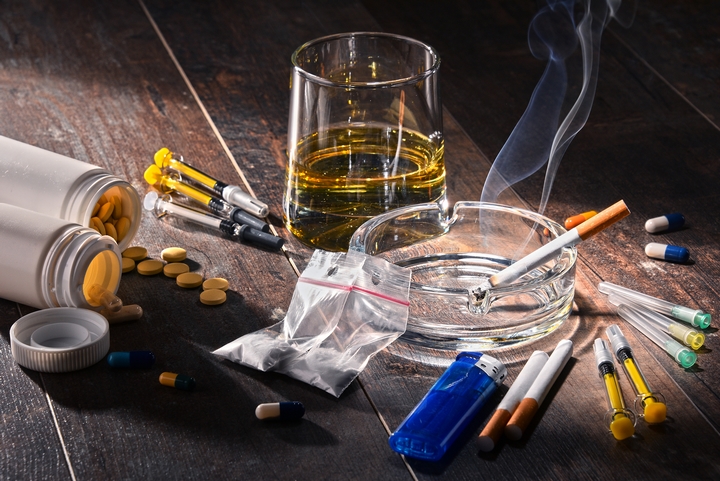
Substance Abuse Relapse Prevention Plan
Sometimes, you might think you’ve handled addiction management well but, unfortunately, start falling back into the trap. It is referred to as a relapse. It’s normal but not the right way to go. That’s why you should always have a prevention plan to guide you.
Relapse prevention is not as complicated as how other reverts make it appear. Furthermore, you should only focus on people who are adding a positive mark in your recovery journey and leave the rest alone. Adhering to the above steps can help you develop a reliable prevention plan. Who knows? You might also become a sponsor someday following your success.
This blog post will highlight various drug abuse relapse prevention plans you can undertake on your recovery journey.
What Is a Relapse Prevention Plan?

A relapse prevention plan can be formally defined as a technique that helps people undergoing recovery stay within the initial goal regardless of the challenges. Many times, it’s a written document that the patient creates themselves alongside a sponsor or support team. You can use it daily as a reminder of your freedom and good health goals.
Emotional Relapse
There are three stages of relapse, starting with emotional, whereby one conceals their emotions regarding the entire recovery journey and prevention plan. They may begin to avoid meetings, self-care, and family/friends they’ve been associating with during the recovery.
Mental Relapse
Later, it advances to mental relapse when the person starts to fantasize about their old life when they used to abuse drugs or alcohol. They may begin planning a relapse, look for friends who have relapsed, and craving to use drugs.
Physical Relapse
The last stage of relapsing is the physical one, when the person eventually reverts to substance use, even if it’s in small quantities. Being in denial, they often do it secretively as they progress to not fearing the public anymore.
Below are the steps to take when developing a relapse prevention plan.
Find Addiction Treatment Centers Near You

Undoubtedly, going through the recovery journey alone can be strenuous. In many cases, people find themselves relapsing due to a lack of physical and emotional support. Luckily, you can find assistance in addiction treatment centers.
These facilities professionally approach recovery and even allocate a particular individual to guide you. Besides the sponsors, you can have a list of reliable friends and family members you can always count on.
Understand Relapse Prevention

The first step in establishing a solid plan to prevent a backslide into substance abuse is understanding what it entails. Simply put, you can hardly develop reliable techniques when you don’t know what to plan for, right?
Hence, let your sponsor thoroughly explain what this involves and how you can proceed before you start writing a relapse prevention plan.
Substance Abuse Evaluation

The next step is evaluating your substance abuse history over the past few years. First, it’s great that you’ve acknowledged you need a relapse prevention plan. This step calls for a flashback of that one time you were deep into substance abuse.
List down the period’s impact on your life or factors attributing to such habits. It’s also vital to note if you’ve been in recovery and reverted before, alongside reasons that made you relapse.
Potential Factors for a Future Relapse

Here, you note the possible things that can push you to return to your old ways. They are referred to as relapse triggers and can be different for everyone. When you understand what affects you, you can devise incredible ways to combat it.
The most common include hanging out with friends you used to abuse drugs with, visiting the old ‘spots’ even just for fun, or attending events with drugs in them. Some triggers develop with time, meaning you cannot acknowledge them all from the beginning.
Fightback Strategies

You can develop adequate fightback strategies once you’ve known your relapse triggers. You can have a specific management plan for every factor and implement them. Some examples of relapse trigger management techniques include:
Avoiding Stress
Stress has significantly been associated with relapse as victims strive to find comfort in drugs following frustrating events. That means it’s only best to avoid situations that make you distressed.
Coping Mechanisms
Here, you can list the activities that can help you feel engaged and not think of relapsing even when you’re free.
Alternative Consumptions
Medical professionals advise recovering persons to find alternative substances they can consume in replacement for particular drugs. The doctor recommends some, while others are just typical foods one loves.
Prioritize Self-Care

When you have your relapse prevention plan in place, you can now focus on self-care. Recovering shouldn’t translate to being hard on yourself. As you work on being sober, focus on things that would keep your mind and body relaxed at all times.
It can be joining the gym alongside other home exercises like meditation, yoga, or deep breathing. Keeping a healthy sleeping pattern, drinking enough water, eating a balanced diet, and catching up with friends with good intentions can also help with relapse prevention.





